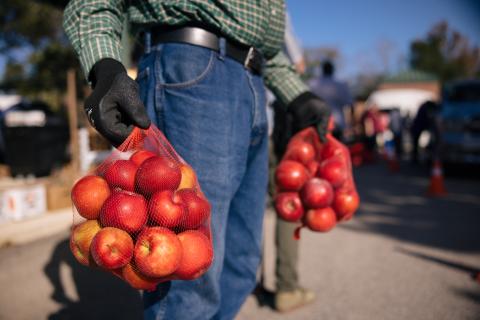House File 3, regarding SNAP, Medicaid, and other public assistance programs, was introduced the first week of the 2023 Iowa legislative session. If passed as is, the proposed bill will ultimately increase hunger and food insecurity in our state.
The SNAP Program works and is an efficient program that brings Federal Funds into the Iowa economy. In fact, every $1 spent with SNAP has a multiplying effect of $1.50-$1.80 on Iowa's economy.
Please write your Iowa House Representatives and ask them to remove these harmful provisions in the bill. Request they instead focus on the provisions that would help hard working families fight hunger, such as supporting the Double Up Food Bucks program.

